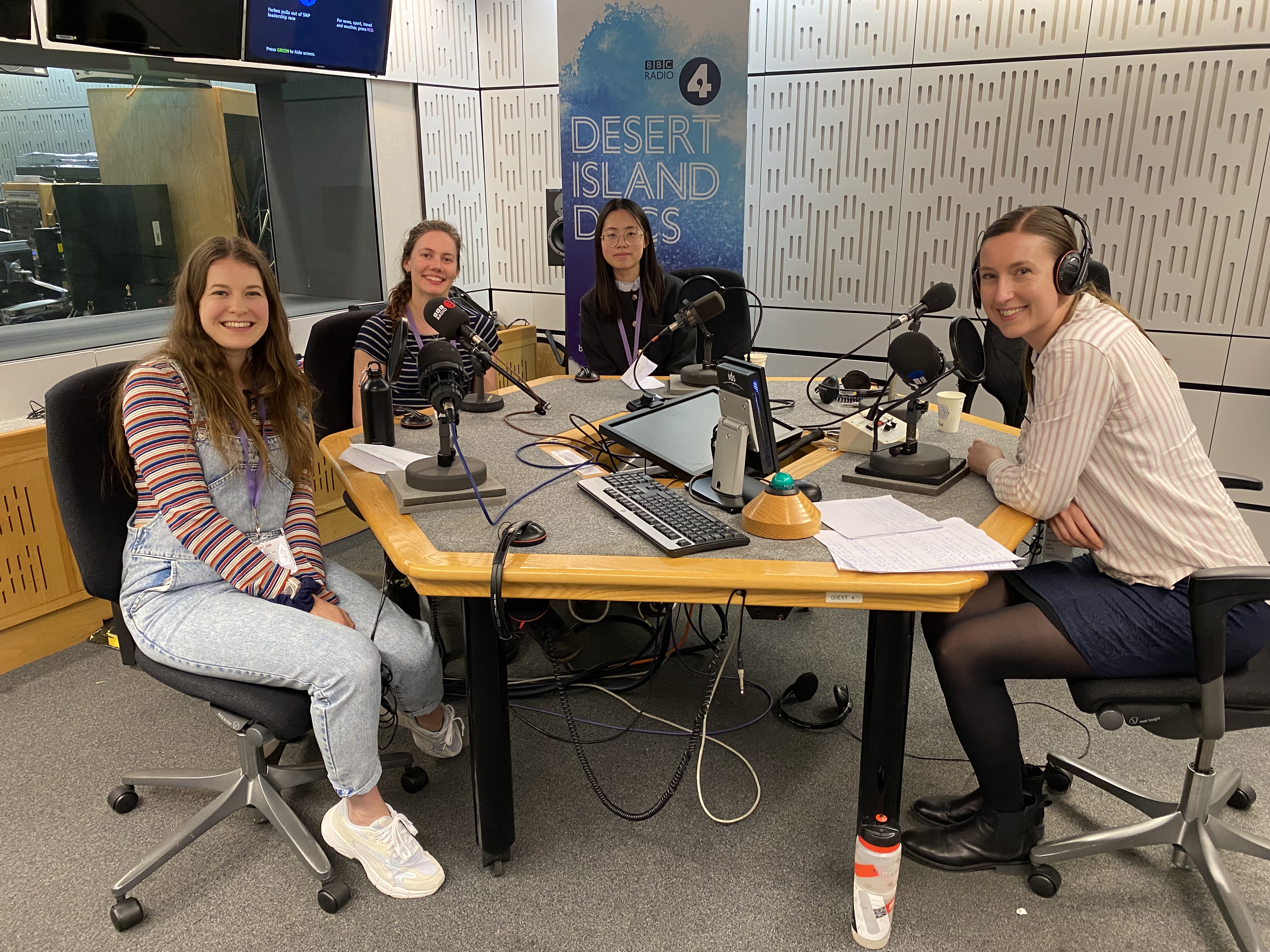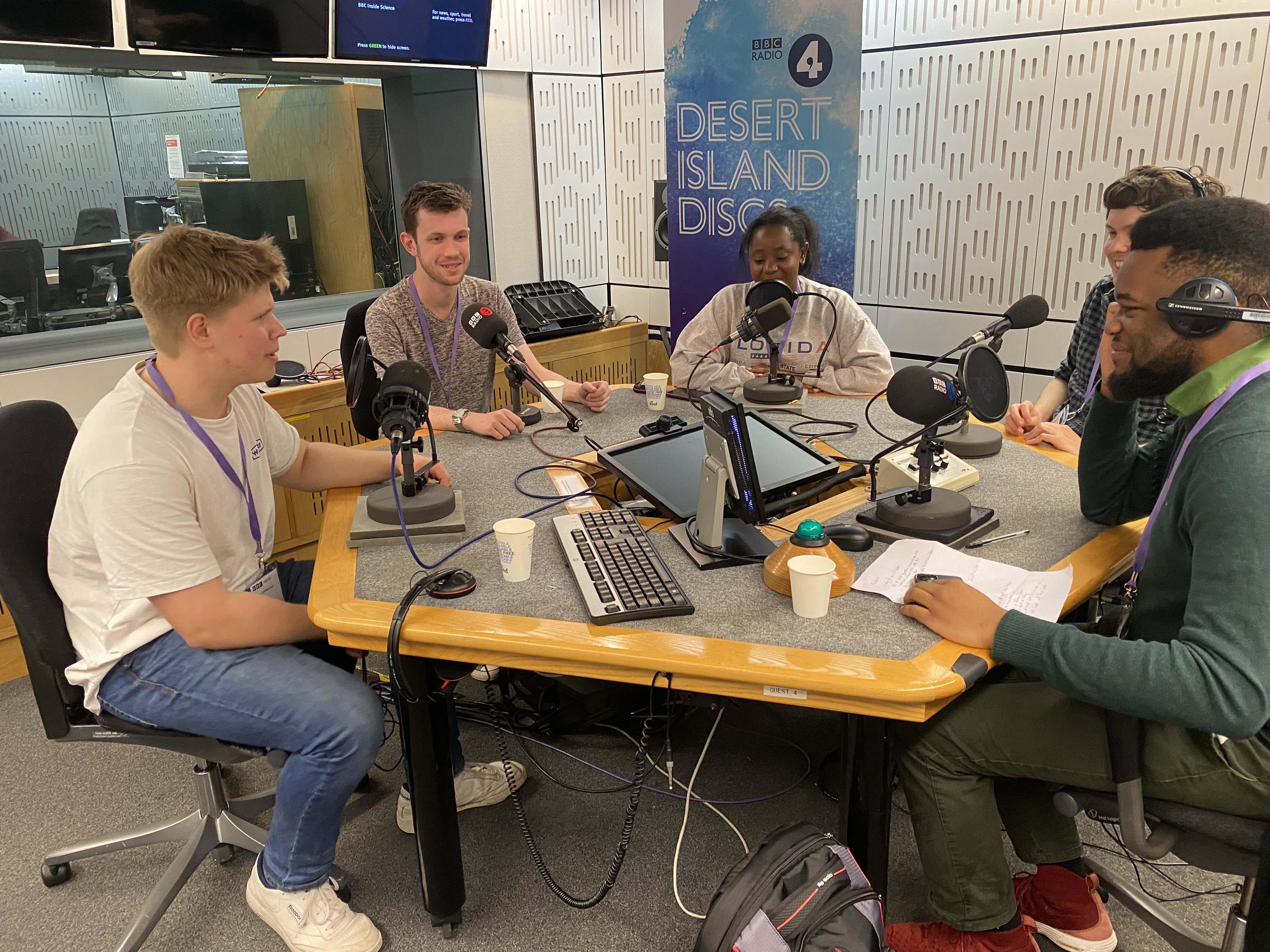The ICB CDT has been running its flagship Science and Communication transferable skills training course for over 10 years. Led by Gareth Mitchell, Lecturer in Broadcast Communication within the Imperial College Science Communication Unit, former presenter of Digital Planet, BBC World Service, and host of the “Somewhere on Earth: The Global Tech Podcast”, this course aims to explore the various ways in which the research community engages with non-specialist audiences.
 This course is a one stop shop in which students will develop their skills in communicating their research. Social media, podcasting, museums, videomaking, and more will be covered.
This course is a one stop shop in which students will develop their skills in communicating their research. Social media, podcasting, museums, videomaking, and more will be covered.
In addition to visiting Broadcasting House at the BBC, students will also now have the exciting opportunity to visit the Science Museum to explore how museums communicate science.
“Twitter or Insta, which platform best suits your engagement agenda? We’ll bring you up to date with social media and how best you can grow your profile and follow the important people in your research area.
Fancy making great videos about your research? We’ll get you started, we’ll show you the kit, give you some filming tips and explain how you can harness video to get the best out of your message.
 And why spend all afternoon looking at boring PowerPoint slides when you could be getting out and about? Our lively museums expert will take you next door to the Science Museum to give you an insider’s insight into how museums communicate science. From developing great interactives to sourcing amazing objects and from writing grabby text panels to making things safe for diverse audiences, you’ll hear the tricks of the museums trade.
And why spend all afternoon looking at boring PowerPoint slides when you could be getting out and about? Our lively museums expert will take you next door to the Science Museum to give you an insider’s insight into how museums communicate science. From developing great interactives to sourcing amazing objects and from writing grabby text panels to making things safe for diverse audiences, you’ll hear the tricks of the museums trade.
Your studio awaits: yes, our unique selling point is exclusive access to the famous BBC radio studios at Broadcasting House in London. In groups you’ll work with a professional sound engineer, making science radio shows, as if live on air!
Your tutors all have first-hand knowledge of the mainstream and social media. We haven’t just looked it up in a book, we know what we’re doing, and we love sharing our knowledge and experience.”
Aims and objectives
- To explore the various ways in which the research community engages with non-specialist audiences
- To survey the various social media platforms and discover which best suits your research and communication agenda
- To give a first-hand insight into how the media works
- To practise media techniques like interviewing and presenting
- To acquire a renewed, savvy attitude to the media and wider engagement
- To experiment across media platforms in the supportive and safe space of our friendly, informal training environment
- To have fun and get to know each other
Date last reviewed: 7 May 2024
Date last updated: 7 May 2024


